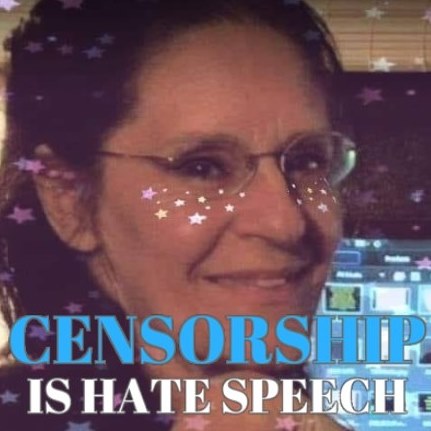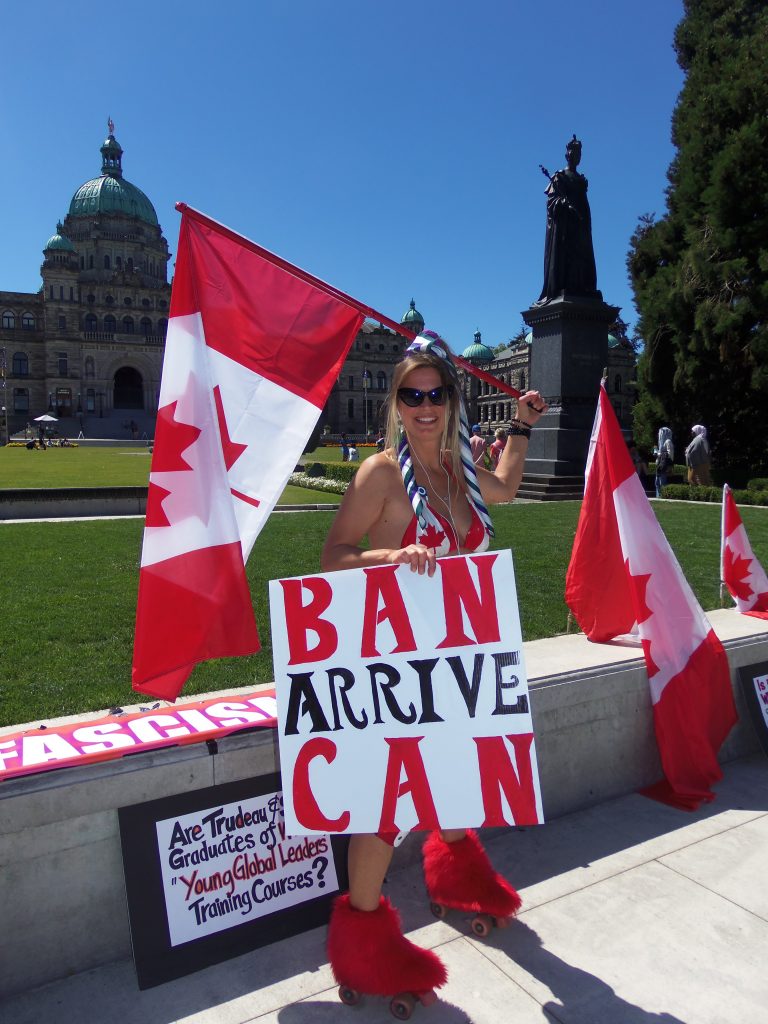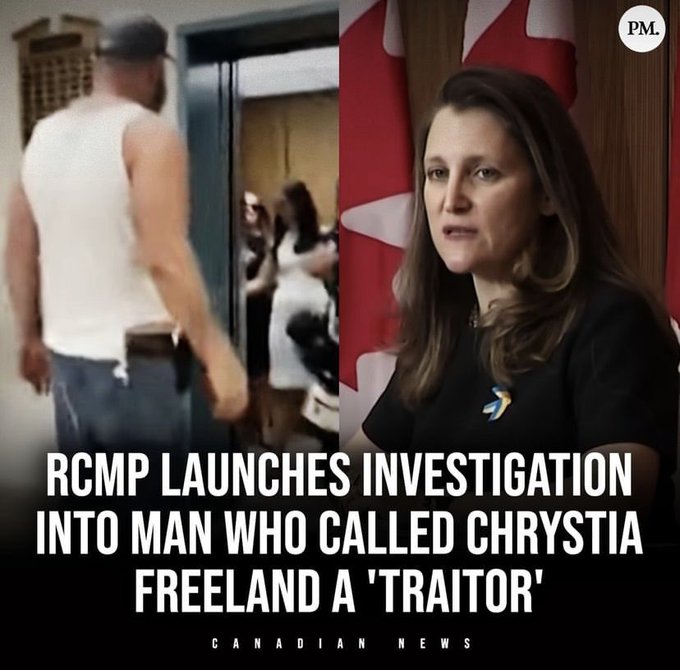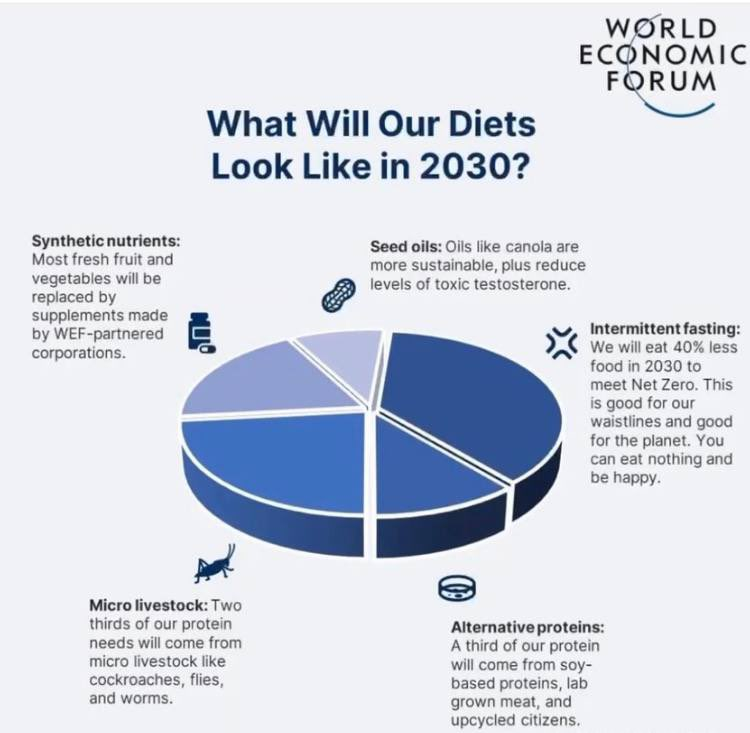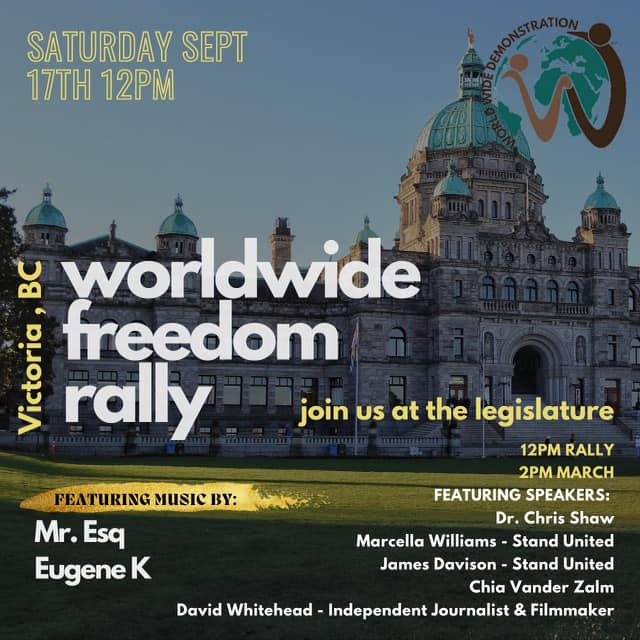
August 27, 2022, Second Anniversary of Freedom Rallies in Victoria.
Is stating a political OPINION, even a bit rudely, now a criminal offence?
Doesn’t Look Very Yummy — the Food Plans for 2030 of the World Economic Forum
Absolutely Disgusting German Hypocrisy
Penticton for Freedom: A Candlelight Vigil for All the Victims of the COVID Mandates, Since March, 2020 — Sunday, September 11, 7:20 PM City Hall http://cafe.nfshost.com/?p=7887
On September 11th Penticton4Freedom will host a Candlelight Vigil, in honour of all who have been impacted by the series of ‘mandates’ imposed since March 2020. We’ve chosen this date to reflect the urgency of the situation. (Dial 911 in an emergency.)
Many communities across Canada have begun hosting these events in recent months, co-sponsored by the Canada Health Alliance:
https://canadahealthalliance.org/candlelight-vigils/
The intent is to create a respectful and inclusive space for sharing, reflecting, and connecting.
It has been more than two and a half years since the launch of COVID-19 and people across Canada are beginning to take stock of all the damage that has been done.
For many, this includes unexpected vaccine injuries (including death), job loss, economic disarray, mental illness and suicide. While the injured and damaged and their families and friends attempt to pick up the pieces, there is little acknowledgement or accommodation available for them. In many cases, there is no one to hear their stories or acknowledge and assist with the trauma and loss.
Mainstream media is not talking about this growing issue, and when those with a vaccine injury bring their problems to their doctor, they are usually tossed aside as being unrelated to the vaccine or are often attributed to anxiety. This leaves the injured in a constant state of uncertainty and distress, feeling afraid to make their claims public for fear of humiliation.
Canada Health Alliance, in collaboration with Vaccine Choice Canada and a growing network of other organizations, is joining together to acknowledge these silenced victims through a series of Candlelight Vigils. Communities all across Canada are stepping forward to assist in the healing process, where all those who have been hurt, marginalized and discredited can share their story and find support.
Everyone is encouraged to share their personal stories and photographs on social media using the hashtags #tellyourstory and #bringlighttodarkness. Those who were injured by the COVID vaccine or harmed by the public health mandates can tell their stories at https://canadahealthalliance.org/tellyourstory .
WHERE: Penticton City Hall 171 Main St
WHEN: Sunday, September 11, 7:20 PM
WHAT: Bring a candle (we will provide some), your and/or a loved one’s story, a photo, or flowers (we would love to leave them on the steps to create impact). Bring a chair if you need one. If you are not able to read your story, that is okay. If you want us to read on your behalf, please connect with us.
ACTION: Let’s get 50 people gathered!!! Share this message with 2 others. Show up!!
~ Mary Lou Gutscher
780-908-0309
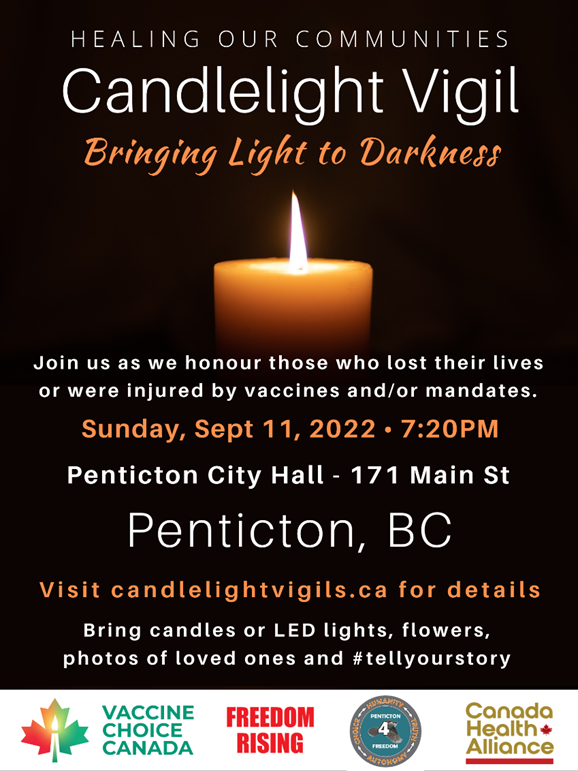
How to Make Your Submission to the Rouleau Commission Investigating Trudeau’s Invocation of Rights Stealing (stolen/frozen bank, trucks seized, peaceful protest smashed) “Emergencies Act”

I want to give you an important update about the Emergencies Act inquiry and some information about how you can personally contribute to the inquiry and hold the government to account. The use of the Emergencies Act was illegal, and the Canadian Constitution Foundation is fighting it in court. We are also participating in an independent inquiry – the Rouleau Commission – that is looking into the government’s use of this law. The Rouleau Commission is now accepting comments from the public – that means YOU can send the inquiry a public comment about your experience and reaction with the 2022 Freedom Convoy and the government’s illegal and unconstitutional use of the Emergencies Act. Your comment may be quoted in the hearings, or in the Commission’s final report. It is imperative that the Commission hear from members of the public and understand the full impact on citizens of the federal government’s illegal and unconstitutional use of the Emergencies Act. This is an important way for your voice to matter. There are many untold stories related to the Freedom Convoy. Much of the reporting of the protests was disconnected to the experience of participants and observers who were on the ground at these protests in early 2022. These public comments are now an opportunity for those stories to be told as a part of the Inquiry. Your comment can be submitted by email to perspectives@poec-cedu.gc.ca. It can also be submitted by mail to: Public Order Emergency Commission c/o Main Floor Security Desk 90 Sparks Street Ottawa, ON K1A 0A3 Before you send in a public comment, I want to give you style suggestions, the background facts you need to know, some key messages and questions you may want to consider answering, and of course, the technical details of how and when to send in your submission. I can’t wait to tell you all about it. I want to start by saying this inquiry is NOT the government. It is an independent and non-partisan commission chaired by a very respected court of appeal judge and staffed by experienced lawyers. This inquiry was not called out of the kindness of the Prime Minister’s heart – it is required by law. I think if it was not required by law, it almost certainly would not be taking place. So my first piece of style advice is to remember that your comments are NOT being sent to the government. They are NOT being sent to the prime minister, or to any politician. It is being sent to a judge. So don’t use bad language. Don’t use partisan language. It won’t help. In fact, it will only undermine the credibility of your message. I want your submissions to matter. It’s too easy to dismiss a public comment that is full of angry and profane language, or that comes across as a partisan attack. I get that a lot of you are angry – I’m angry too. But let’s channel our anger into something useful by sending in public comments that use our words to communicate the damage that the government has done by illegally using the Emergencies Act. Remember that your submission may be referred to or quoted by the Commission either in the report or in the public hearings. Use language you would be proud to have attributed to you, even though no identifying information will be used without your express permission. My second piece of style advice is to start by addressing your letter “To The Public Order Emergency Commission”. Then begin your submission with your main message. Your main message could be an answer to a question. I have a list of questions you might consider answering listed in the description below. Or instead of answering a question, your main message could be your experience as a participant in the protests or an observer of the protests. You should keep your submission between 1 and 2 pages. If your submission is really long, it may not be read as carefully. You should focus your letter on the most important things you want the commission to know. You can also include pictures, photographs and other supporting documents, if you think that will help. Submissions can be made anonymously. If you want to submit anonymously, it makes sense to explain why you are making that choice. For example, some professionals who participated in the protests faced consequences from their employers. There was a hack of the information about donors to the freedom convoy, and their information, including names and addresses, posted online. I do understand why someone may want to make an anonymous submission, but it is a good idea to explain why you made that choice so the Commission understands too. If you are submitting anonymously, please note your country of residence. We all remember how some media outlets accused the Freedom Convoy of being “foreign funded” – something that turned out not to be true. So make sure you say where you live to prevent those kinds of false allegations about the people sending in public comments. Lastly, you may submit by handwritten letter by mailing to the address I’ve linked to in the description below. Just please ensure your handwriting is legible. That’s my style advice. But I also have advice to give you on the substance of the submissions. To make your public comment more impactful, focus on a main message. Your main message could be your experience as a participant in the protests or an observer of the protests. Or you could answer one, or more of these questions: Did the Emergencies Act make you afraid to attend other protests in the future? Including protests on topics unrelated to the Freedom Convoy? Were you afraid to donate to any charities unrelated to the Freedom Convoy after the government invoked the Emergencies Act? Were you concerned that your financial information could be shared with the government if you donated to other charities? Were you personally involved in the Freedom Convoy protests, and if so, what was your experience like? How was your experience impacted by the use of the Emergencies Act? How do you feel about the protests and about the use of the Emergencies Act. If you were not involved in the protests, what were your views as an observer or person who was affected by the protests? What were your views of the police and government response? How did the police and government response make you feel? Are there any changes you would recommend in terms of the Emergencies Act to ensure it is not abused again in the future? What is your view on whether the strict threshold set out in the Emergencies Act was met? Has the government provided a sufficient explanation about why existing law enforcement tools were insufficient? It is also important to remember some important facts about the Emergencies Act and its invocation when sending in a public comment. First, emergency powers have a dark and troubled history in Canada. The Emergencies Act was enacted to replace the War Measures Act, which was abused by previous federal governments. In response to the abuse of the War Measures Act, the Emergencies Act was carefully crafted to set out a demanding set of legally binding conditions that must be satisfied before it can be invoked. Those conditions were not met in this case. The Emergencies Act is exceptional. It gives the federal cabinet authority to create new criminal offences and police powers, without recourse to Parliament, without advance notice, and without public debate. The law poses the risk of executive overreach which could have profound effects on Canadian democracy. Because the Emergencies Act vests enormous power in the federal cabinet, it should be interpreted strictly. The Emergencies Act can only be invoked when there are no other legal tools available to deal with an ongoing situation that is urgent, temporary and national in scope. The February 2022 Freedom Convoy protests were cleared using ordinary police powers. In the view of many civil liberties organizations, including the Canadian Constitution Foundation, the invocation of the Emergencies Act was not absolutely necessary, as the Act requires. After invoking the Emergencies Act, the federal government brought in Economic Measures and Emergency Measures. The Economic Measures enacted under the Emergencies Act required banks to disclose private banking information to police. This amounted to a warrantless and unreasonable search of private banking information. The Emergency Measures prohibited a very broad range of conduct, including generally acceptable and legal protest behaviour, breach of which was punishable by fines and imprisonment. The federal government has not provided an explanation for its invocation of the Emergencies Act beyond a simple declaratory statement that a public order emergency existed. The federal government is fighting the disclosure of documents that provide a record of why this law was invoked. The federal government is not acting transparently, or explaining why this law was necessary. If the federal government refuses to provide an explanation, it is reasonable to draw the conclusion that no good explanation exists. The Rouleau Commission hearings begin on September 19, so it is best to send a public comment before that date, although they will be accepted up until October 31. If you want additional information and style guidance on how to send in a public comment, visit theccf.ca/emergencies-act-inquiry/ Good luck. And I hope you take part in this inquiry. Yours truly, Christine Van Geyn PS – We are fighting this battle against the illegal use of the Emergencies Act as part of the inquiry, but also in court. We’ve hired one of the best lawyers in the country, but that means the fight is expensive. Please consider making a tax-deductible gift to help us pay our legal fees at theccf.ca/donate/ |
| |
| Follow us on Social Media |
| Canadian Constitution Foundation 6025 – 12 St SE, Suite 215 Calgary, Alberta T2H 2K1 |
Canada Imposes A New State Religion — the Holocaust; Doubters Will Be Jailed
Canada Outlaws “Condoning, Denying or Downplaying” the Holocaust Mythos: Jewish Political Theology Enshrined in the Criminal Code
August 11, 2022/54 Comments/in Featured Articles, Free Speech/by Prof. Andrew Fraser
According to the OED, a “mythos” is a “traditional or recurrent narrative theme or pattern; a standard plot in literature.” For many, the Holocaust Mythos conjures up the hope of universal redemption from the absolute evils of racism, anti-Semitism, and militant White nationalism. Arising out of the allegedly planned extermination of the Jewish people by “Nazi” Germany and its collaborators, the story has acquired canonical status in officially-constructed “memory cultures” throughout the West. In Canada, where the politically correct Trudeau regime clearly craves recognition as a humanitarian superpower, the government has followed in the footsteps of Germany and several other European states by enshrining the official narrative in the Criminal Code, s. 319. Henceforth
(2.1) Everyone who, by communicating statements, other than in private conversation, wilfully promotes antisemitism by condoning, denying or downplaying the Holocaust
- (a) is guilty of an indictable offence and liable to imprisonment for a term not exceeding two years; or
- (b) is guilty of an offence punishable on summary conviction.
Even before the criminal law was amended to outlaw the “[w]ilful promotion of antisemitism,” schools, universities, churches, and the media in Canada routinely stigmatize anyone who publicly dares to doubt the truth of the Holocaust Mythos. The Canadian parliament, therefore, meekly echoed Jewish historian Alon Confino who describes the Holocaust as “a foundational event that tests the limits of our humanity.” Another Jewish historian, Matthew Feldman, acknowledges that the received interpretation of “the Holocaust” as “history’s greatest crime” emanates a quintessentially religious aura. No Member of Parliament wanted to be seen “profaning” the memory of Jewish victims of “the supreme example of human inhumanity” by voting against the proposed amendments. For its part, the Trudeau government can be confident that enforcement of its postmodern anti-blasphemy law will not be impeded by the much-hyped Charter of Rights and Freedoms. For a long-time Charter sceptic such as myself, this is no surprise.
After the massive violations of a host of fundamental rights and civil liberties supposedly “guaranteed” by the Charter during the recent Covid pandemic, suppression of presumptive rights to form and publicly express controversial opinions on the history of the Third Reich is about par for the course. Is it merely coincidence that this restriction of free speech reflects the power and serves the interests of one particular, highly-visible, economically well-endowed, socially privileged, and politically powerful ethnic group? Curiously enough, at least one prominent Jewish spokesman fears that to make “condoning, denying, or downplaying the Holocaust” a criminal offence will not be good for the Jews. Nevertheless, Carolyn Yeager, an American blogger of German ancestry, has documented the widespread support for such legislation within the organized Jewish community in Canada.
When it was announced, the text of the Trudeau regime’s proposed amendment to the Criminal Code was buried in Annex 3 of the federal budget papers presented to Parliament in the spring of 2022. By the end of June, the government’s amendments had sailed through Parliament as part of a long and complex budget bill, receiving royal assent without debate on their merits (much to the relief of MPs, one suspects). The current legislation adopts the definition of the Holocaust originally proposed in a private member’s bill blatantly mirrored by the government measure; namely:
Holocaust means the planned and deliberate state-sponsored persecution and annihilation of European Jewry by the Nazis and their collaborators from 1933 to 1945
As it happens, such a definition has been repeatedly “denied” or “downplayed” by the so-called “functionalist” school of mainstream historians who portray the Holocaust as an evolving reaction by bureaucrats, military personnel, and collaborators to events during the war years rather than the product of an “intentional,” “planned” or “deliberate” scheme directed from the top down. It remains to be seen whether s. 319(3)(1)(c) will provide an adequate defence for someone publicly promoting a “functionalist” interpretation of the Holocaust. According to this provision, no-one shall be convicted if “the statements were relevant to any subject of public interest, the discussion of which was for the public benefit, and if on reasonable grounds they believed them to be true.” This defence does not, of course, prevent prosecutions in which the process is itself intended to serve as the punishment. Outside the respectable realm of decorous academic debate, however, renegade “revisionists” risk the full measure of legal retribution.
Why, then, is the foundational event of Christianity, the paschal mythos surrounding the death and resurrection of Jesus Christ, less deserving of protected legal status than an officially prescribed, crypto-theocratic single-sentence story arising out of the Second World War? Is it merely coincidental that the Holocaust Mythos features a narrative arc remarkably similar to the Easter story? Although set in the twentieth-century, the Shoah is a story of undeserved Jewish suffering in the “death camps” of Eastern Europe followed by their triumphant, ethno-religious resurrection in the promised land of Israel.
In Canada from now on, anyone publicly “condoning,” “denying,” or even “downplaying” the Jewish Holocaust narrative faces the threat of two years imprisonment. This repressive measure was announced shortly after Christian pastors were charged merely for holding Easter Sunday church services in contravention of public health orders during the contrived Covid “emergency.” When contrasted with the obsequious reverence accorded to contemporary Jewish sensibilities, such blatant disrespect for age-old Christian rituals represents a remarkable challenge to the political theology of every Anglo-Protestant church.
Are the truth claims of the official Holocaust Mythos any more or less contestable than the biblical and ecclesiastical narratives concerning the historical Jesus? One often hears the claim that “the Holocaust” is the best documented “event” in human history. But when, where, and by whom have the relevant and reliable documents been subjected to free, fair, and public forensic cross-examination and opened to continuing debate between all interested parties?
How did we reach the present sorry state of affairs? The answer to that question requires a fundamental critique of contemporary Anglo-Protestant political theology and, in particular, that of the Anglican church. After all, given a literal definition of “political” as meaning “affairs of state,” any aspect of the theology professed by the Church of England is political in the sense that it is an established, state church. True, in the first half of the twentieth century, the Anglican churches in the old White dominions were not state churches, but their overwhelmingly Anglo-Saxon membership by and large trusted their governments and, following their lead, accepted the declarations of war against Germany in 1914 and 1939 without significant demur.
Moreover, in Great Britain, the bishops of the Church of England were members of the House of Lords. De facto, the government of the day decided who were to be identified as enemies of the British people and punished as such. Assigning guilt for the state of war between Germany and the British Empire was a matter of state policy. In both the Versailles treaty (aka, the Diktat) imposed on Germany in 1919 and the Nuremburg trials following Germany’s defeat in WWII, the imperial and dominion governments upheld the charge that Germany alone was guilty of waging a war of aggression.
But political theology denotes more than the everyday activities of an established church complying with state policies. According to the German jurist Carl Schmitt, politics, in the deepest sense, has to do with the existential distinction between friend and enemy. Because the Church was not an autonomous ecclesiastical polity of, by, and for the English people, friends and enemies of the British state were, ipso facto, friends or enemies of the Church.
Unfortunately, neither the WASP laity nor the ecclesiastical leadership of the Church of England, either “at home” or in the dominions, have done much to defend and preserve the ethno-religious dimensions of Anglican identity. This stands in stark contrast to the well-known ethnocentrism of the Jewish people. By enshrining the Holocaust Mythos in the Criminal Code, the Canadian government has embraced a quintessentially Jewish political theology.
Dirk Moses, the Frank Porter Graham Distinguished Professor of Global Human Rights History at the University of North Carolina-Chapel Hill, in his well-received book on The Problems of Genocide, identifies the narrative structure of the Holocaust Mythos as “the archetypical genocide” in international law. He observes that both law and popular culture present “the image of the largely agentless and innocent—that is unpolitical—Jewish victim [as] the ‘ideal’ or ‘exemplary’ victim.” Orthodox Jews typically “emphasize…the traditional religiosity of Jewish victims” and “[t]his theological interpretation has permeated general commemoration, which thereby constitutes a political theology.” The officially-prescribed, global “memory culture” adopts that particularistic political theology whenever it associates Jews with “the archetypical and universal form of victimhood”.
There is no denying the particularistic, ethno-religious significance of the Holocaust Mythos. This was evident, for example, when a cross-party trio of Jewish MPs rose in the House of Commons to offer their fulsome support during the second-reading of Tory M.P. Kevin Waugh’s now redundant private member’s bill to criminalize “Holocaust denial” in Canada. The Trudeau regime, of course, has a broader agenda, aiming to burnish its self-proclaimed credentials as the first post-national state. The government, therefore, will probably “deny” or “downplay” the ethno-religious favouritism inherent in its decision to sanctify Jewish political theology by force of law.
Whatever the consequences of that decision in Canada however, Anglo-Protestants throughout the Anglosphere now have a rare opportunity to consider how their ethno-religious interests might be adversely affected by the criminalization of public dissent from the officially-prescribed Holocaust narrative. We should pray that the opportunity to reflect upon who “we” are, where “we” came from, and perhaps even where “we” are going will not be missed. Sadly, however, Anglo-Protestants, especially Anglicans, have embraced a liberal humanitarianism that now makes it all but impossible to distinguish between “us” and “them.”
